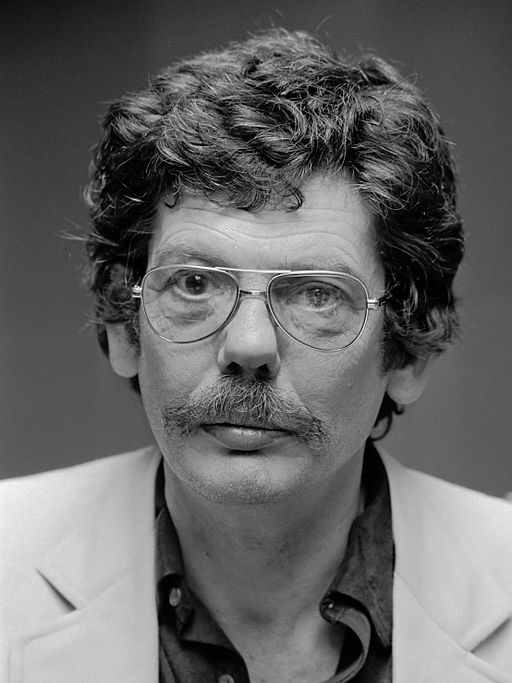Book Review: "Afterzen: Experiences of Zen Student Out on His Ear" by Janwillem van de Wetering
By Siduri
@msiduri (5687)
United States
October 23, 2016 1:48pm CST
Better known for his detective novels featuring Adjutant-Detective Henk Grijpstra and Detective-Sergeant Rinus de Gier, of the Amsterdam homicide division, Dutch author Janwillem van de Wetering (1931-2008) also wrote a set of three books about his time as a Zen student. This, Afterzen: Experiences of a Zen Student out on His Ear, is the last.
The book is arrange thematically rather than chronologically. Each chapter takes a koan, or Zen riddle given as part of a student’s study, as its theme. For example, “Where does one go from atop a 150 foot pole?” Or, where does one go from the apparent pinnacle of success? Not only does he address the traditional koan, the author offers a character study of a student who is that envy of all the other students.
Nevertheless, the book begins, “Koans are vastly overrated." The author recounts hearing this during a chance encounter with a Hindu teacher while snowed in at Boston's Logan Airport. The same teacher states that overdoing meditation while sitting in a double or half lotus position is "a pain in the ass." While he wonders if it isn’t the teacher who is overrated (there is jealousy among religions), van de Wetering reluctantly confesses—at least to the reader— that prolonged sitting in meditation (zazen) has indeed given him chronic hemorrhoids. It’s an unnatural position that puts stress on the human rectum. Preparation H is common in Zen monasteries. How many books on Zen are going to tell the reader that?
In a narrative of this sort, a collection of memories, people wander in and out. It takes several mentions of that person to make a complete story. The reader hears the story of the author’s early days in studying Zen and well as his disillusionment and departing. He presents stories of haunting tragedy (“The Master’s Feet Turns Right in Front of Your Head”) and joy, as there always is, but no meaning—only life and the author’s appreciation of it.
The story of van de Wetering's introduction to Zen is told in the story in the chapter titled, "Who the Hell Was Buddha?" The question is answered in an unexpected way, a Zen sort of shock therapy. The author describes his arrival at a Japanese temple:
My introduction to Zen was in the Japan of the late fifties, in the temple city of Kyoto. No pollution, no gridlock. Things were like they were supposed to be, as I innocently walked into my Far Eastern dream. The temple my karma led to me was Daitoku-ji, a vast Buddhist complex built long ago in an even more ancient style, that of T'ang Dynasty architecture copied from Chinese records. Sloping roofs swept up at the corners, plastered walls with slate tiles, statues of ego-destroying monsters guarding monumental gates, raked rock and gravel compositions, evergreen trees and bushes carefully cut, carefully maintained moss gardens, giant goldfish in shallow clear ponds, curved bridges—it was all there, the ideal background of monks and priests on geta, jazzy sounding wooden clogs, and in simple robes under shiny shaven heads. Seeing this mystical splendor, I stopped doubting whether I would find at least some answers.
...There was a huge copper bell, complete with wooden hammer, and I hit it. I felt like an actor in a classic Japanese movie. Were spiritual samurai going to come out to lead me to an enlightened master? I stood in awe. The booming sound of the huge bell brought out the monks, who were in awe too, for that bell is only hit on important occasions. It wasn't New Year, there wasn't a forthcoming gathering of high Zen officials, and it wasn't the Buddha's birthday; it was just me...
Not understanding the furor he caused at the time, he expresses gratitude toward the monastery’s abbot who accepted him when everyone else was ready to throw him out after his unintentionally rude behavior.
The book may seems to wander, but only to come around a corner and return home. This is beautifully, simply told. Reading the earlier books may prove of some benefit in understanding, though this stands easily on its own.
_____
Title: Afterzen: Experiences of a Zen Student Out on His Ear
Author: Janwillem van de Wetering (1931-2008)
Paperback: 208 pages
Publisher: St. Martin's Griffin; First Edition (March 8, 2001)
*An earlier version of this review appeared on another site that is now defunct. It has been expanded and expanded for its inclusion in myLot.
Image is of author : Janwillem van de Wetering in 1982
Attributrion: By Hans van Dijk / Anefo (Nationaal Archief) [CC BY-SA 3.0 ( via Wikimedia Commons
2 people like this
2 responses
@teamfreak16 (43421)
• Denver, Colorado
25 Oct 16
Sounds cool. Too bad I'm at the library with only an hour of computer time.
1 person likes this
@JohnRoberts (109857)
• Los Angeles, California
23 Oct 16
I couldn't get past saying the title and author name lol!
1 person likes this








